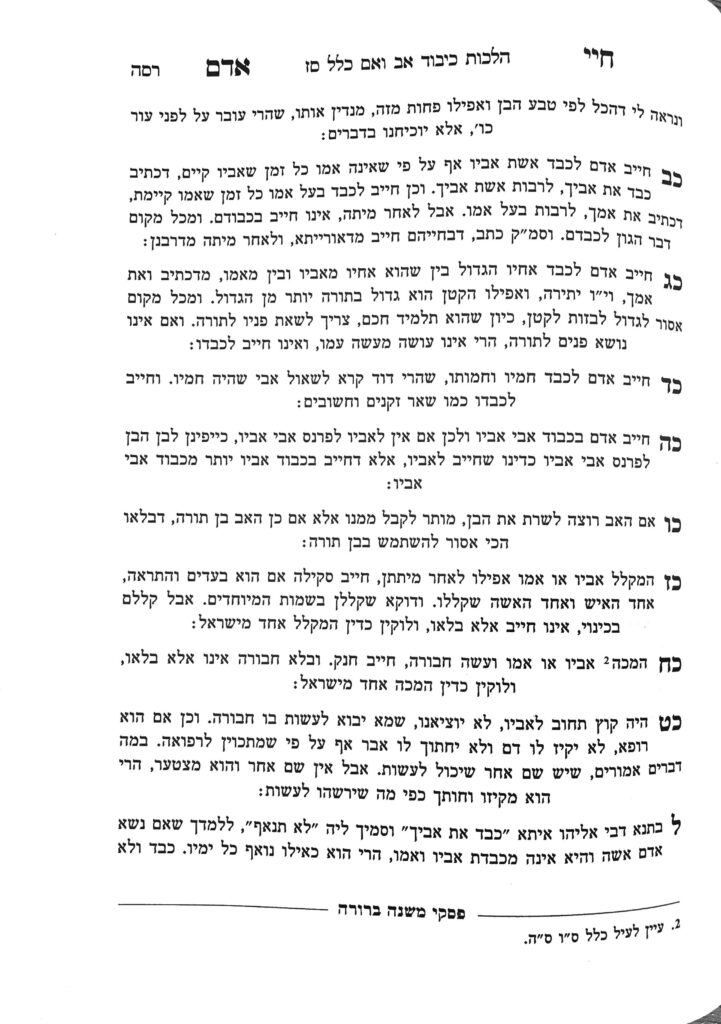We have finished siman 30. The Chayei Adam ends the siman by referring the learner to oisiyos in Sefer Chassidim, where the Sefer Chassidim discusses kibud av v’eim.
In the middle of os 564, the Sefer Chassidim writes that if a married man’s parents are argumentative people, and are getting into arguments with his wife where she is in the right and they are in the wrong, the man has no chiyuv kibud av v’eim to support his parents. Rather, he should support his wife. Obviously, if one is in such a situation, they should seek proper guidance from a rav.
The Sefer Chassidim continues, and writes that if the man has the means, he should engage someone else to take care of his parents, and move away from them in order to avoid the conflict. If his parents need him, he should remain local, but should not be supportive of his parents against his wife.
In os 566, the Sefer Chassidim points out that the pasuk says ish imo v’aviv tira’u, with tira’u in the plural form, even though ish is singular. He explains that tira’u can be understood as referring to the parents. Thus, the pasuk can be understood as teaching that the parents have the responsibility to ensure that the child fears them. The parents have to be aware that if the parents act inappropriately toward the child, the child will not take it sitting down, so they must be careful not to place their child in a situation in which they cause the child to respond by hitting or cursing the parents. The parents have the responsibility not to create such a pressure on the child.
In os 567, the Sefer Chassidim writes that Hashem did not place a heavy burden of mitzvos on Klal Yisroel. Similarly, a parent should not overburden a child, nor should a rebbe overburden a talmid. He explains that if the child or talmid feels overburdened by their responsibilities, they will not fulfill them, and the parent or rebbe has now caused the child to sin.
Similarly, a parent has to be aware that if they give large sums of money to their children, they are potentially setting up their children for challenges. Parents should be sensitive to the challenge and not put their children in such a situation.
Summary
- If a man’s parents are getting into needless arguments with his wife, if he has the means, he should hire someone else to tend to the parents and move away. If he cannot leave, he should not support his parents against his wife.
- Parents have the responsibility not to place a child in a situation in which he comes to hit or curse their parents.
- Parents should not overburden their children with responsibilities to the extent that they cannot fulfill them. Similarly, a rebbe should not do the same to a talmid.



